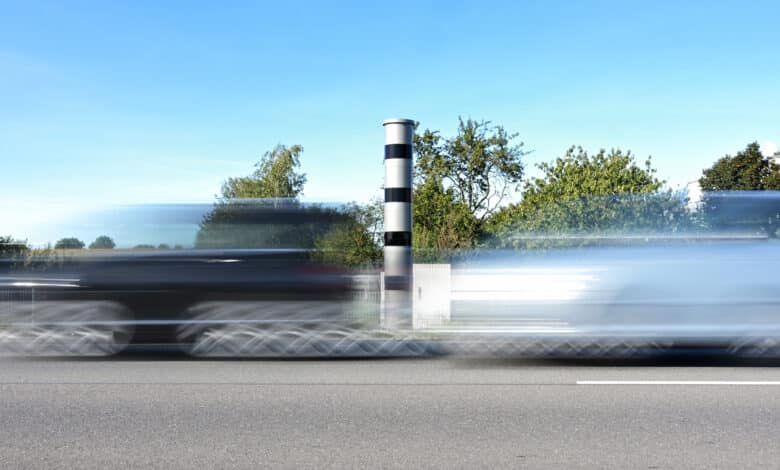
In Rhineland-Palatinate, the Monocam, an AI-controlled video camera that monitors cell phone use in traffic, will soon be launched. If the AI detects anything unusual in the car, the recording is saved and forwarded to the police for evaluation. The prerequisites for use must first be created in terms of data protection law.
Test phase on two highway bridges
As part of a test phase, the system has already been used on two highway bridges in Rhineland-Palatinate. Near Trier and near Mainz, the monocam video cameras filmed inside passing cars. If the algorithm detected a cell phone in the hand of the person driving, the corresponding recording was saved and forwarded to the police, who were in a nearby vehicle. The officers there manually evaluated the recordings once again to avoid errors. Subsequently, the drivers were fined 100 euros as well as a point in Flensburg.
No basis under data protection law
Meanwhile, there was no data protection law basis for the test phase. This led to numerous affected persons lodging appeals against their penalty notices. Although the Trier District Court dismissed the appeals in the first instance, the matter has not yet been finally decided. It should be noted that the new monitoring technology is much more invasive than conventional speed cameras in terms of data protection. While conventional speed cameras only take a picture in the event of a violation, the monocam films every vehicle interior. Rhineland-Palatinate’s Interior Minister Michael Ebling asserts that recordings are only stored in the event of initial suspicion; however, this does not change the fact that sensitive personal data is initially collected – based on the mere fact of road use.
Legislative amendment planned
Ebling wants to address this problem with a change in the law that would basically allow the use of the monocam – and thus limit the autonomy and privacy of all motorists in the country. Ebling justifies his desire to use the monocam permanently with the accompanying reduction in cell phone use in road traffic, which would serve traffic safety. Ultimately, as in almost every case of data privacy restriction, this touches on the narrative of public safety outweighing personal freedom.
Ebling did not provide concrete figures. However, he made it clear that he interprets the pilot phase extremely positively: “We found that our new approach at least halved the number of distracted driving violations in the test phases in Trier and Mainz. In many cases, the preventive effect even goes beyond that.”
Overall, this shows that technical innovations are also being used more quickly and more clearly in road traffic to expand monitoring. This also applies, for example, to the noise speed cameras planned in Berlin. This points to a broader phenomenon that has been discussed for a long time, for example, with regard to smartphones and facial recognition in private and public spaces.



